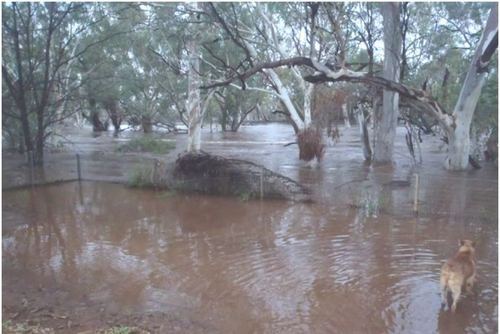Australian Town Sees Flooding Rains
The town of Dajarra, a small Australian town in the northwestern part of Queensland, has faced flooding problems that started mid-week and worsened Thursday. The flooding was associated with a surface trough of low pressure that stayed nearly stationary for over 24 hours and sparked slow moving convection. General reports of 60-80mm in the region were reported but some localized amounts reached as high as 150mm. In addition, the region has been drought-stricken in the past few months which makes it tougher for water to infiltrate soils and easier to runoff.

The result of all this rain was that creeks overflowed their banks and quickly turned into raging rivers. Most residents were evacuated as homes were threatened or were inundated by the floodwaters. Some workers from the railway were also stranded but have since been saved from the waters. The town is still cut off due to floodwaters as of Friday evening.
Dajarra’s average rainfall for the whole month of February is 100mm but they have received over 125% of this in the past week. It appears as though the surface trough will linger until the end of this weekend and continue to bring unsettled weather. This event comes two weeks after the flooding that occurred in Adelaide, South Australia, which wreaked havoc on the city. In one day 73mm of rain was dumped on Adelaide making it the most rain the city had received on a single day in February since 1969.
